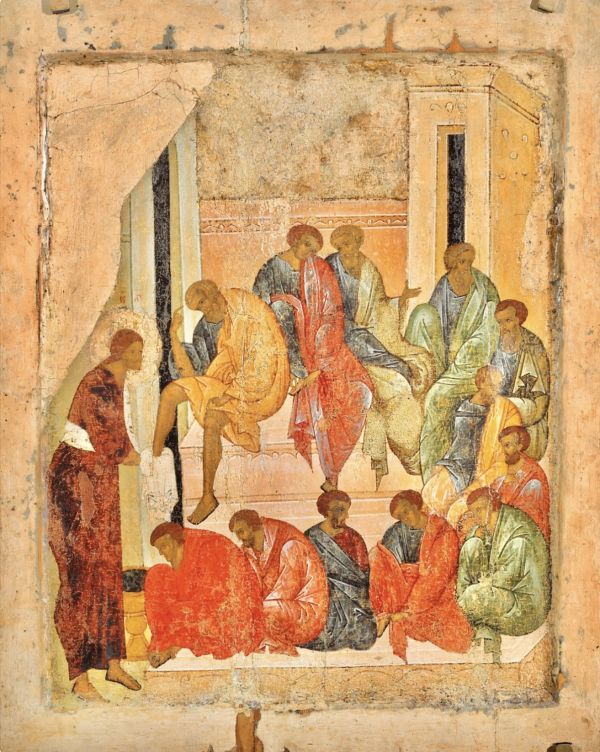«Having loved his own who were in the world, he loved them to the end» (Jn 13:1).
The washing of the feet done by Jesus to his own was a school of life for Francis. He understood the profound meaning of that gesture to the full, reproducing it on his journey.
The Poor Man of Assisi all his life washed the feet of his brothers and the neighbour he met, always ready to serve and help anyone in need.
Francis not only loved the Eucharist, but he himself lived in a Eucharistic manner, making his body and blood bread for his brothers and sisters and caring for them.
Scanning the Sources we realise how much emphasis and Eucharistic solicitude covered his days.
How ardour and evangelical penetration ran through his bare existence as a friar, who always returned to God and his brothers what he had freely received.
Francis' last days also clearly set out his gaze towards the Lord's Supper.
We read in the Sources:
"While the brothers were shedding bitter tears and lamenting in despair, he had bread brought, blessed it, broke it and gave each one a piece to eat.
He also wanted the book of the Gospels and asked that the Gospel according to John be read to him, from the passage that begins:
«Before the feast of Easter», etc.
He recalled at that moment the Most Holy Supper, which the Lord had celebrated with his disciples for the last time, and he did all this precisely in venerable memory of that supper and to show how much tenderness of love he bore the brothers" (FF 808).
Clare too had great devotion to the Holy Supper of the Lord, living the paschal mystery in unity with her Bridegroom.
"The day of the Most Holy Supper had once come, in which the Lord loved his own to the end.
Towards evening, as the agony of Christ approached, Clare shut herself, sad and afflicted, in the secret of her cell. And accompanying the Lord in prayer, her sad soul to the point of death became imbued with the anguished sadness of Him, and her memory, little by little, became fully filled with the capture and all the mockery: so that she fell back on the bed" (FF 3217).
And the Sources record his intense love for the Eucharist saying:
"When she was about to receive the Body of the Lord, she first shed hot tears and, approaching then with trembling, feared Him who is hidden in the Sacrament no less than the Sovereign of heaven and earth" (FF 3210).
Francis and Clare made the Eucharist the place of learning in the art of living.
Holy Thursday «Lord's Supper» (Jn 13:1-15)












